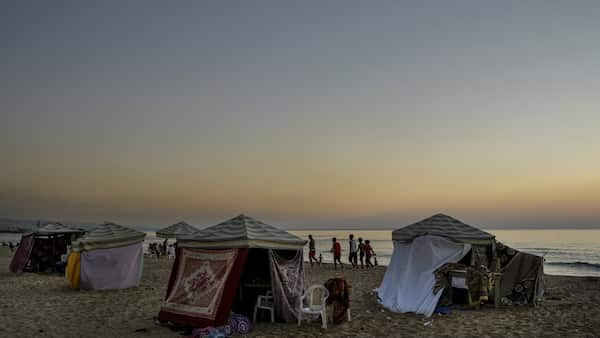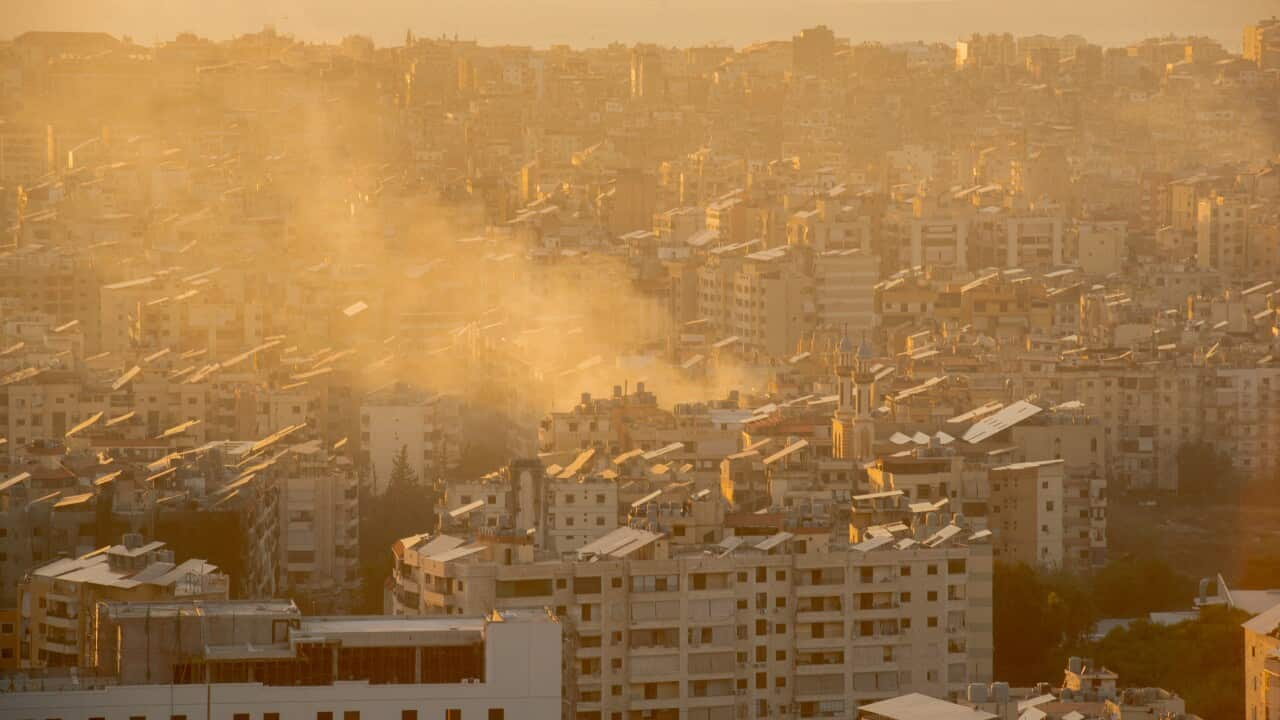Key Points
- Benjamin Netanyahu said on Tuesday that Israeli airstrikes had killed two successors to Hezbollah’s slain leader.
- Sayyed Hassan Nasrallah, Hezbollah’s former leader, was killed by an Israeli airstrike on Beirut in late September.
- In recent comments, Hezbollah’s deputy head didn’t demand a Gaza truce as a condition for a ceasefire with Israel.
Hezbollah militants targeted Israeli soldiers near the Lebanese border village of Labbouneh with artillery shells and rockets on Wednesday, the group said in a statement, a day after hinting that a truce in Gaza was no longer a pre-condition to halting the combat in Lebanon.
Sirens sounded in northern Israel on Wednesday, the Israeli military said, adding three Israeli military personnel were severely injured on Tuesday and Wednesday during combat in southern Lebanon.
Israeli Prime Minister Benjamin Netanyahu said on Tuesday that Israeli airstrikes had killed two successors to
“We’ve degraded Hezbollah’s capabilities. We took out thousands of terrorists, including (Hassan) Nasrallah himself and Nasrallah’s replacement, and the replacement of the replacement,” Netanyahu said, without naming the latter two.
Israeli minister suggests Hashem Safieddine ‘eliminated’
Israeli defence minister Yoav Gallant said Hashem Safieddine, the man expected to succeed Nasrallah, had probably been “eliminated”, but it is not yet clear who Netanyahu was referring to when he said the “replacement of the replacement”.
Later, Israeli military spokesperson Daniel Hagari said Israel knew Safieddine was in Hezbollah’s intelligence headquarters when fighter jets bombed it last week and Safieddine’s status was “being checked and when we know, we will inform the public”.
Safieddine has not been heard from publicly since that airstrike, part of an escalating Israeli offensive after a year of border clashes with Hezbollah.
The group is the most formidably armed of Iran’s proxy forces across the Middle East and has been acting in support of Palestinian militants fighting Israel in Gaza.
Israel’s military said on Tuesday that heavy airstrikes against underground Hezbollah installations in southern Lebanon over the prior 24 hours killed at least 50 fighters including six sector commanders and regional officials.
“Today, Hezbollah is weaker than it has been for many, many years,” Netanyahu said in a video released by his office.
Hezbollah hints Gaza truce demand could be dropped
Netanyahu’s comments came hours after the deputy leader of Hezbollah left the door open to a negotiated ceasefire.
In a televised speech from an undisclosed location, Hezbollah’s deputy leader Naim Qassem said he backed attempts to secure a truce.
For the first time, a truce in Gaza was not mentioned as a pre-condition to halting the combat in Lebanon. Qassem said Hezbollah backed moves by Speaker of Parliament Nabih Berri, a Hezbollah ally, to secure a halt to the fighting.
Two days earlier, two lower-ranking Hezbollah officials had also talked about a Lebanon truce without making a linkage with Gaza. Hezbollah has not explicitly said it was shifting its position and as of 9 October hadn’t provided comment to Reuters.
US State Department spokesperson Matthew Miller told a briefing in Washington that Hezbollah had “changed their tune and want a ceasefire” because the group is “on the back foot and is getting battered” on the battlefield.
Netanyahu’s office declined to comment on Qassem’s remarks.
Qassem said Hezbollah’s capabilities were intact despite “painful blows” from Israel. “Dozens of cities are within range of the resistance’s missiles. We assure you that our capabilities are fine.”
Hezbollah began firing rockets into Israel on 8 October last year, a day after Hamas-led militants attacked southern Israel from Gaza, killing 1,200 and , according to Israeli tallies.
The group cited solidarity with Hamas as the reason for its attacks
, according to the local Palestinian health ministry.
Israeli ground operations, airstrikes continue
The Israeli military said it had sent the 146th Division into south Lebanon, the first reserve division to have been deployed over the border, and was extending ground operations against Hezbollah from southeast Lebanon into its southwest.
A military spokesperson declined to say how many troops were in Lebanon at one time but has previously announced that three other army divisions were operating there, meaning that thousands of soldiers were likely on Lebanese soil.
Overnight, Israel again bombed Beirut’s southern suburbs where Hezbollah is headquartered and said it had killed a figure responsible for budgeting and logistics, Suhail Hussein Husseini.
In northern Israel, not far from the Lebanon border, warning sirens sounded regularly throughout Tuesday as authorities said Hezbollah fired almost 200 rockets into Israel.
Targets again included Haifa, the northern port city where there were multiple reports of damage to buildings from missile debris. Israel’s military said it had struck the launchers that fired the missiles at Haifa.
The mushrooming Israeli-Hezbollah conflict has
An Israeli military spokesperson said over 3,000 rockets had been fired into Israel from Lebanon so far in October, but interceptions by air defences had prevented many casualties and significant damage.
The Israeli military announced on 1 October that ground forces had entered Lebanon, initially with commando units that were then followed by regular armoured units and infantry units.
Israel’s stated objective is to make its northern areas safe from Hezbollah rocket fire and allow thousands of displaced residents to return.
Seven reportedly killed in Israeli airstrike on Damascus
An Israeli airstrike targeted a residential building in the Mezzah suburb west of the Syrian capital Damascus, killing seven civilians and injuring 11 others, Syrian state media reported on Tuesday.
Preliminary reports said the seven civilians included women and children, state media reported citing a military source, adding it also caused “grave” material damage on private properties in surrounding areas.
As per the cited source, the airstrike was conducted through three missiles coming from the direction of the Golan Heights.
State media earlier reported that Syria’s air defences had intercepted “hostile” targets in the vicinity of Damascus.
It follows that killed at least six people, according to Lebanese health officials.
Israel has been carrying out strikes against Iran-linked targets in Syria for years but has ramped up such raids since the October 7 attacks last year.

